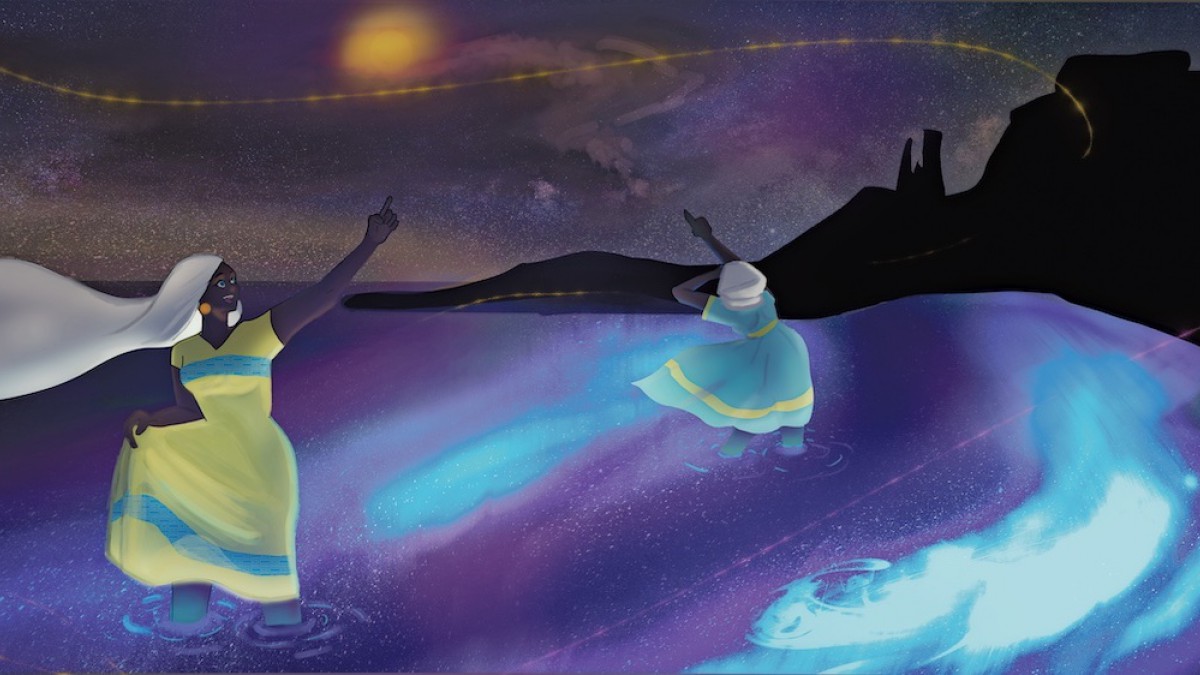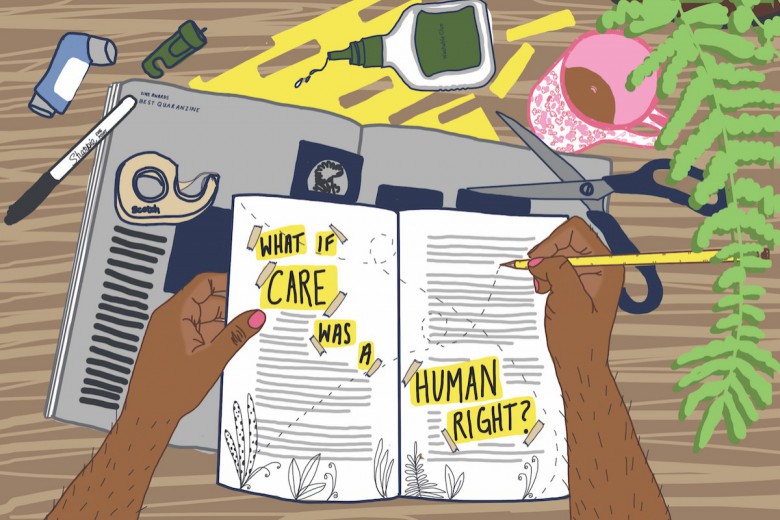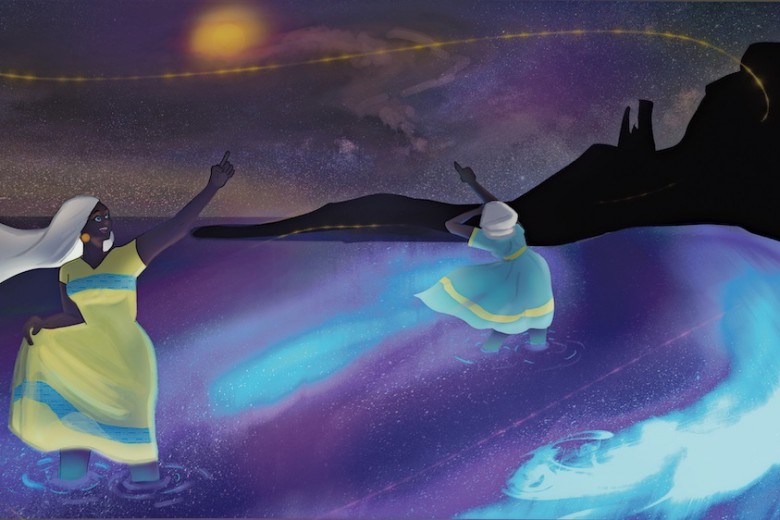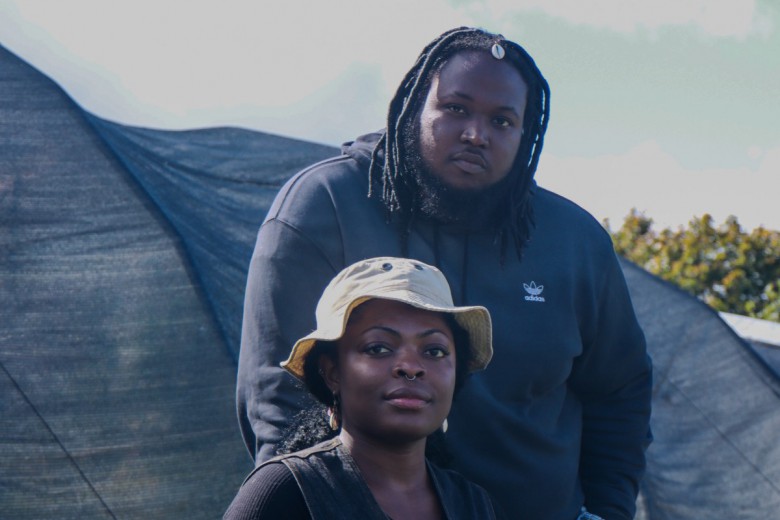In editing this special issue on Black radicalism, we’re keenly aware of how layered and highly contested this term is and has been. Black radicalism in motion as defined by Cedric Robinson is “a revolutionary consciousness that proceeded from the whole historical experience of Black people.” Thus, it follows the tradition of the slave revolts seeking liberation and sovereignty, not merely equity and inclusion. This pursuit of something new (Black sovereignty) rather than something reformed (Black respectability) has been contested and criminalized. Black radicalism shifts with time and place – a way of being and political imaginary that defies and elides any singular meaning. Though contextually bound and historically situated, Black radicalism at its core speaks to a fundamental shift, a movement toward marronage – escape to and emancipation in a colonial-free world.
Readers will notice that contributors refer to African, Caribbean, and Black communities in various ways, and not always consistently. For us, the term Black is a colonial identity conceived by a white supremacist world. Yet, we’ve reclaimed the term, recognizing the strength in our unity and acknowledging our vast diversity and heterogeneity as people of African descent across the diaspora. Thus, Black speaks to the collective bodies oppressed through conquest, imperialism, neocolonialism, and racial capitalism. It is the diasporic transnational presence of these bodies that Black encompasses within the context of this issue. This Black is of Africa, the Caribbean, and the Americas.
For this special issue, we recognized such complexities, accepting that radicalism and resistance for Black folks often manifest in unexpected ways. We also sat with the reality that resistance is not merely for oppressed groups seeking justice; it is also a tool employed by those in power to maintain their privileges, demonstrated by the contemporary anti-woke and anti-critical race studies movement. This prompts us to question the politics the term ‘radical’ is supposed to signify. Historically, the term Black radicalism has not included narratives of Black resistance in the Global South. Through the collection of writings in this issue, we push back against this geographic narrowing of Black resistance, while simultaneously rooting its long history in so-called Canada.
Christina Sharpe, Katherine McKittrick, Rinaldo Walcott, and many other Black scholars in Canada have highlighted the unique positioning of Black people and Blackness in the Canadian landscape – too often we are seen as only ever having fractured connections to our history or being entirely devoid of story in the spaces we inhabit. This narrative is one we challenge and redefine through our stories and art, emphasizing our desire to explore the complexities of Black radicalism and its varied implications within, and in relation to, the Canadian context.
This erasure of Blackness is also why, in addition to the Canada-wide call for submissions for this issue, we contacted Black writers and artists directly. Media publications like Briarpatch play a role in establishing dominant narratives that erase Black voices. Understandable, then, that many Black contributors maintained a healthy dose of skepticism of the intentions of the special issue, invoking politics of refusals in the writing process, in expression of the kind of radical Black feminism we deeply respect and appreciate.
We hope that our readers find both a sense of home and hope in these pages, drawing inspiration from the stories, art, and insights presented. This issue is by no means a complete account of Black radical movements and history, but a small sample. From reflections on personal and family legacies of Black resistance and political organizing to the vital roles of Black youth in shaping contemporary movements, contributors highlight the importance of historical context and forward-looking strategies. The stories, interviews, and artwork traverse a range of topics, including the dynamics of grassroots campaigns; the complexities of Black and Indigenous identities; the intersection of gender liberation with Black freedom; and the global impact of resistance against state violence.
As we present these contributions that offer a window into Black life and radical thinking and organizing, we also advocate for the right to rest and envision a future free from the need to constantly explain our humanity. Together, our contributors have crafted a conversation that dislodges conventional narratives and calls for a commitment to moving in relation to one another, in ways that are continually improvisational and deeply transformative.
In solidarity,
The Black Radicalism Issue Editorial Collective
Fitsum Areguy
Ann Marie Beals
Ruth Cameron
Sophie Jin
Teneile Warren
Ciann L. Wilson




_780_520_90_s_c1.jpg)


